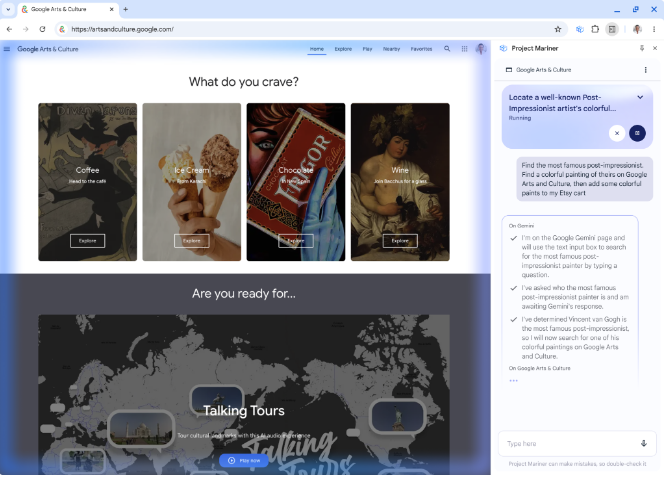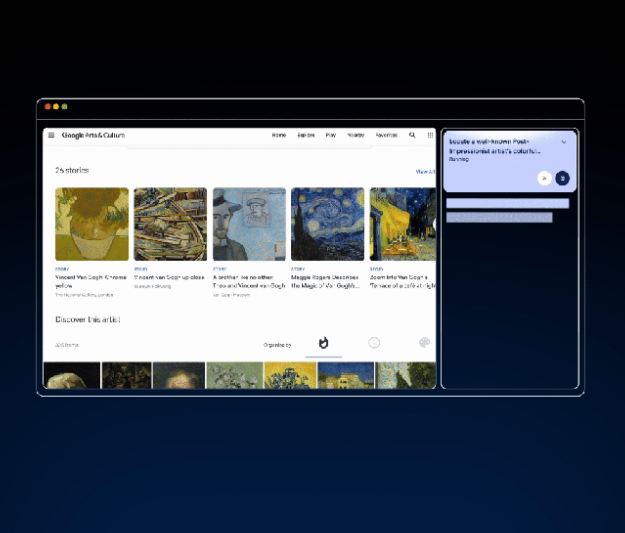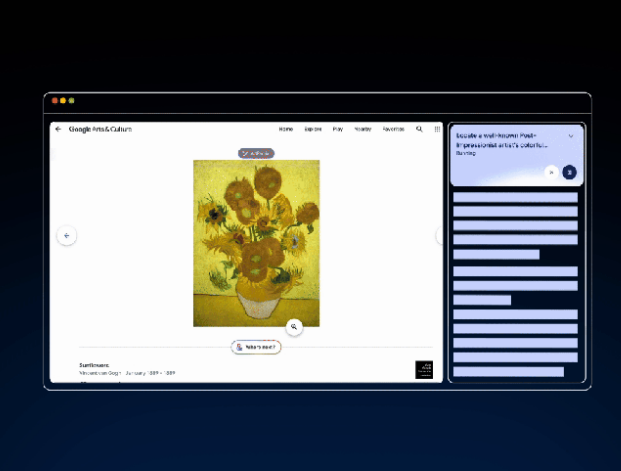Google has launched a new AI agent called Project Mariner, which is a landmark breakthrough. The agent is based on Gemini and can directly control the Chrome browser and mobile device screens to simulate human behavior in browsing and using websites. It can perform complex tasks, such as automatically creating an online shopping cart based on a shopping list, significantly improving user efficiency. However, due to security reasons, Mariner does not currently have online payment capabilities. This technology heralds a huge change in the future of human-computer interaction and will have a profound impact on many companies that rely on network traffic.
Project Mariner can do things like "Create a shopping cart from a grocery store based on this list." The agent navigates to the grocery store's website, searches for and adds items to the virtual shopping cart. However, the agent cannot checkout because it is not supposed to fill in the credit card number or billing information.

Google’s goal is for users to no longer interact directly with websites, but with generative AI systems that do the work for users. This could impact millions of businesses, from publishers like TechCrunch to retailers like Walmart, which have historically relied on Google to attract real users to and from their sites.


Google on Wednesday also launched several other AI agents for more specific tasks, including: * Deep Research: AI agents that help users explore complex topics. Jules: AI agent that helps developers complete coding tasks. AI agents that navigate video games: AI agents that help users navigate the world of video games.
It's unclear when Project Mariner will be rolled out to the majority of Google's user base, but once it does, these proxies will have a significant impact on the wider web. The web was designed for humans, but Google's AI agents may change that standard.
The emergence of Project Mariner marks a significant progress in artificial intelligence in the field of network interaction. In the future, similar AI agents may completely change the way we interact with the Internet. It is worth looking forward to its subsequent development and wider application.